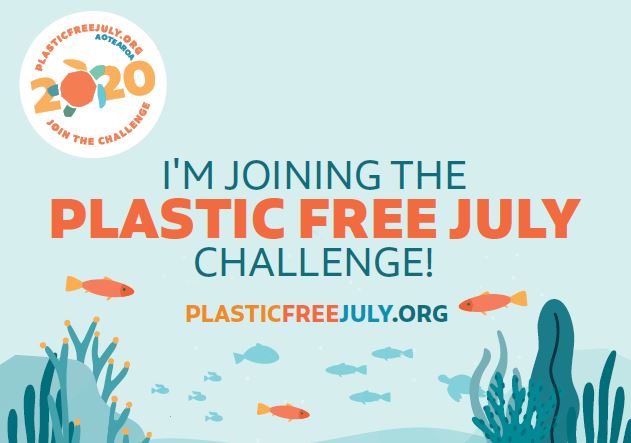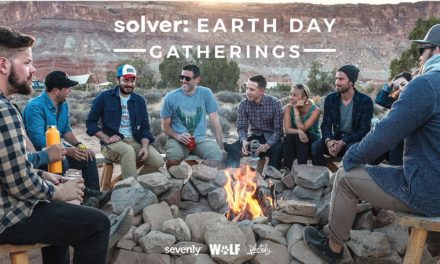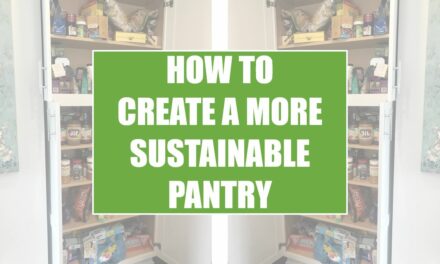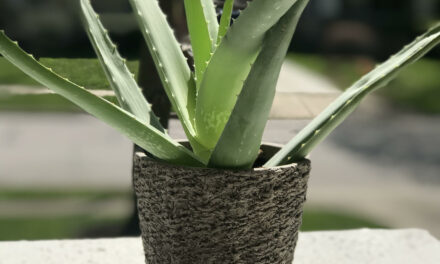The Plastic Problem
Ever stop and think about how much single-use plastic products you use in your daily life? If not, take a moment and think about how many items in your kitchen are contained in plastic packaging: Individually wrapped produce, ketchup and mustard bottles, plastic milk jugs, styrofoam egg cartons.. These all contain plastic. Now, think about your bathroom: Shampoo and conditioner bottles, razors, loofahs, body/face wash.. These all contain plastic, as well.
It’s probably not a big deal when you can just recycle them when you’re done, right? WRONG. Let’s take a look at what happens after the contents of your recycling bin leave your house.
Once the products have been accepted, sorted, and processed into giant cubes, someone needs to buy them. Otherwise, they are either sent to a landfill, incinerated, or stockpiled. China was the United States’ biggest customer for recycled products, particularly plastic. In 2018, China stopped all waste imports from other countries due to the extremely low quality in the recycled products they were receiving. Now, only 56% of America’s exports are being accepted by foreign countries. “Analysis of US export records shows that the equivalent of 19,000 shipping containers of plastic recycling per month, once exported abroad, is now stranded at home. This is enough plastic to fill 250 Olympic swimming pools each month” (The Guardian, 2019).
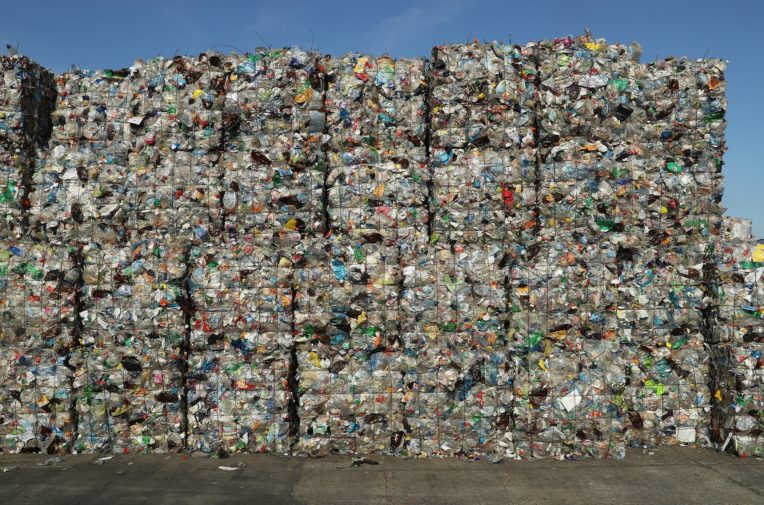
Hopefully, this helps demonstrate why recycling is not considered to be the most sustainable option anymore. The best way to reduce plastic pollution is to avoid it all together and ditch single-use plastic by choosing alternative options. Feeling a little overwhelmed after thinking about how much plastic is in your home? Keep reading to learn about different options and what you can do to reduce your future plastic footprint.
A Little Self Appreciation
But first.. A little self-appreciation because that is important! I started recapping monthly sustainability swaps I made not only to encourage others but to also encourage myself. Sometimes, it may feel like little changes do not amount to much and that the less sustainable route is easier. But sustainability can only happen by sustaining these changes over time.
It helps me stay motivated when I take a moment to look back and appreciate what I learned and did for myself and the environment. I say “myself” and “the environment” because often times, the more sustainable option and/or products are also better for your health.
It also amazes me how sustainability is a continuously evolving space, and there is always something new to learn. If you are just starting out, do not feel discouraged or overwhelmed by how much someone else might know about sustainability. Learn from them, ask them questions! Always stay motivated to continue living a more sustainable lifestyle each day and encourage your friends and family to do the same.
Plastic Free July
Instead of doing a monthly recap for June (to read May’s recap click here), I thought I would introduce the Plastic Free July challenge I will be doing starting Wednesday.
The challenge is hosted by the Plastic Free Foundation which is a non-profit organization focused on reducing plastic pollution based in Western Australia. Their “Plastic Free July” challenge has been an annual event since it was first established in 2011 and has significant global outreach. In 2019, they had 250 million participants and avoided 825 million kg of plastic globally. How incredible is that?
The main goal of the challenge is to commit to avoiding single-use plastic products for the entire month of July. This includes purchasing products for your household, office, and other recreational facilities like coffee shops. Plastic Free Foundation provides a ton of resources on how to get started and ideas for substituting single-use plastic which is helpful for those that are new to sustainability. To sign up, click the link to their main website and fill out the “Take the Challenge” form https://www.plasticfreejuly.org/
I wanted to do this challenge because I think it a great way to reach others and promote alternative products to reduce plastic use. There are also some products and initiatives I would like to try in the spirit of eliminating single-use plastic. I started compiling the list below on the topics I will be discussing/promoting during this challenge.
- Try a refill store in my area for household products
- Discuss stainless steel straws
- Loose leaf tea and strainers versus conventional tea bags
- Making your own plant-based milk
- Repurposing old clothes into something new
- Using bulk food stations and repurposing glass jars for storage
- Produce bags and fruits/veggies with zero packaging
- Cloth wipes to remove makeup instead of disposable wipes
- Re-germinating produce
- Reusable silicone snack bags instead of plastic bags
- Making your own luxury snack items that typically come in plastic bags
- Researching and trying toothpaste bites
- Coconut bowls and bamboo cutlery
- Bamboo toothbrushes
- Saving glass jars and repurposing them
- Reusable coffee cups and water bottles
- Alternative dish scrubbers
- Sustainable dental floss
- Silicone baking mats instead of aluminum foil and parchment paper
- Composting food scraps
- Shampoo / conditioner / body wash bars
- Wool balls instead of dryer sheets
- Reusable espresso pods
- Sustainable menstrual products
- Cloth paper towels and beeswax covers
Hopefully, you found this post to be informative about the plastic problem, why recycling just isn’t an option anymore, and what you can do to help! These challenges are a great way to ease into a more sustainable lifestyle, meet like-minded people, and feel good about the impact you’re making. Make sure you subscribe to our site and join our community to stay updated during Plastic Free July!
Sources
- https://www.agricanto.org/uploads/5/2/6/3/52634281/americans_plastic_recycling_is_dumped_in_landfills_investigation_shows.pdf
- https://www.5gyres.org/truth-about-recycling/
- https://www.plasticfreejuly.org/
- https://nerc.org/news-and-updates/blog/nerc-blog/2018/01/23/chinas-ban-on-recyclables?gclid=CjwKCAjw_-D3BRBIEiwAjVMy7Iyi8reEnxibx2aQy4GMY5YeKtnMPNulSJGi_Sp4MAOfBDgn0vWo4BoCj_gQAvD_BwE
Plastic Free July
Day(s)
:
Hour(s)
:
Minute(s)
:
Second(s)

